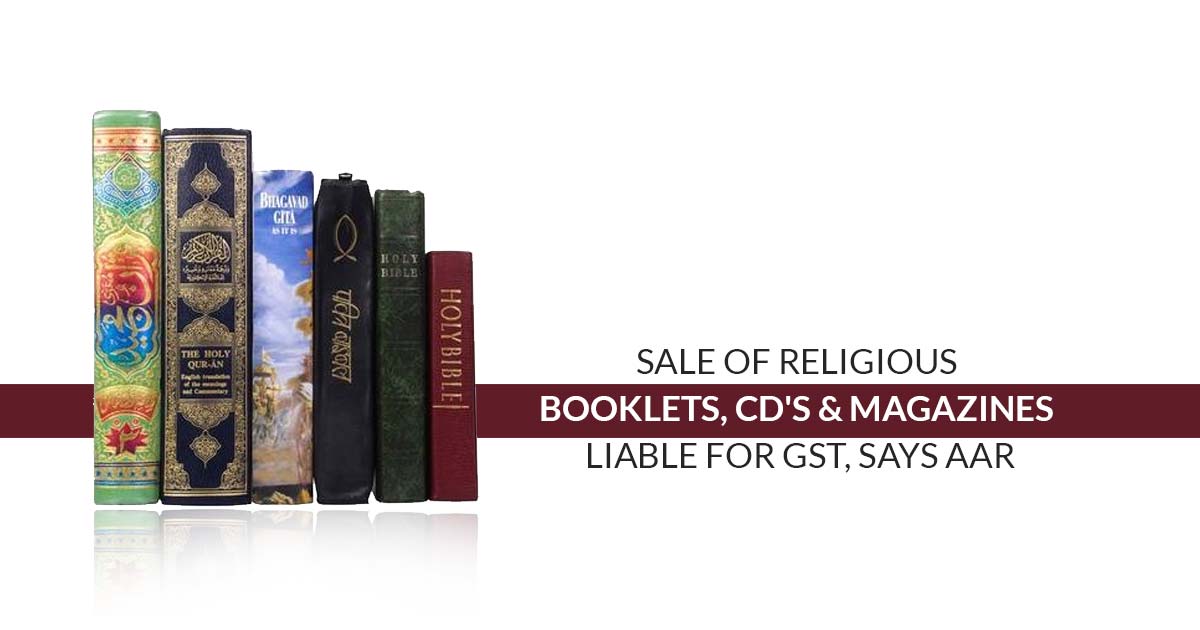India is a land for spiritualism. While religion in India has been a major unifying factor, its economic viability is not unknown to many. Selling products like booklets, magazines, and DVDs in name of fostering and expanding religious and spiritual teachings are similar to selling consumerism in America. Realising this fact the AAR or the Authority for Advance ruling for GST has confirmed that GST laws apply to promotional activities conducted by religious organizations too.
The Authority of Advance Ruling Maharastra bench while hearing a plea from a particular religious community observed that income from any activity like the sale of DVDs, magazines as well as providing accommodation and food will attract GST. These are not charitable but business activities and hence liable for GST.
The concerned religious organizations pleaded that all its activities are a means to create awareness towards religious teachings and for fostering spirituality. Categorizing this as a commercial activity would be inappropriate. This makes section 2 (17) of the CGST Act invalid for its books and cd’s distribution as well as accommodation facilities. However, the AAR body thought otherwise. The AAR pointed out that under section 12AA of the Income Tax Act the complainant is liable for GST on the sale of books, CDs, statues as well as its accommodation provisions. Further, the community does not enjoy any specific exemptions which make the 2 (17) of the CGST Act valid.
Read Also: Confusing GST Rulings By AAR Cause Troubles For Businesses
The Key Takeaways in the Ruling:
Some key takeaways from the AAR Ruling which stands to affect other similar organization and institutes include:
- The CGST Act does not consider any arrangement of residential or non-residential Satsang for which the participants give a certain amount (on free will or as fees) as ‘charitable activities’.
- Such gatherings that charge fees fall within the definition of ‘business’ under section 7 of the CGST Act. This mandates a GST registration number and must comply to return filing norms as well as a tax deduction if the FY turnover crosses the threshold prescribed under section 22 of the CGST Act.
- GST does exempt advancement of religion or spirituality as a charitable activity but this does not mean that ancillary or incidental services will be seen with the same eye. No GST exemption must be leveraged on the basis of entities status.
GST: A Demarcation Line?
This AAR ruling is also profound as it will force large businesses that stoop to the formation of trusts that perform outright charitable and religious activities and evade tax. It will force such trusts to view their commercial activities through the GST lens.










